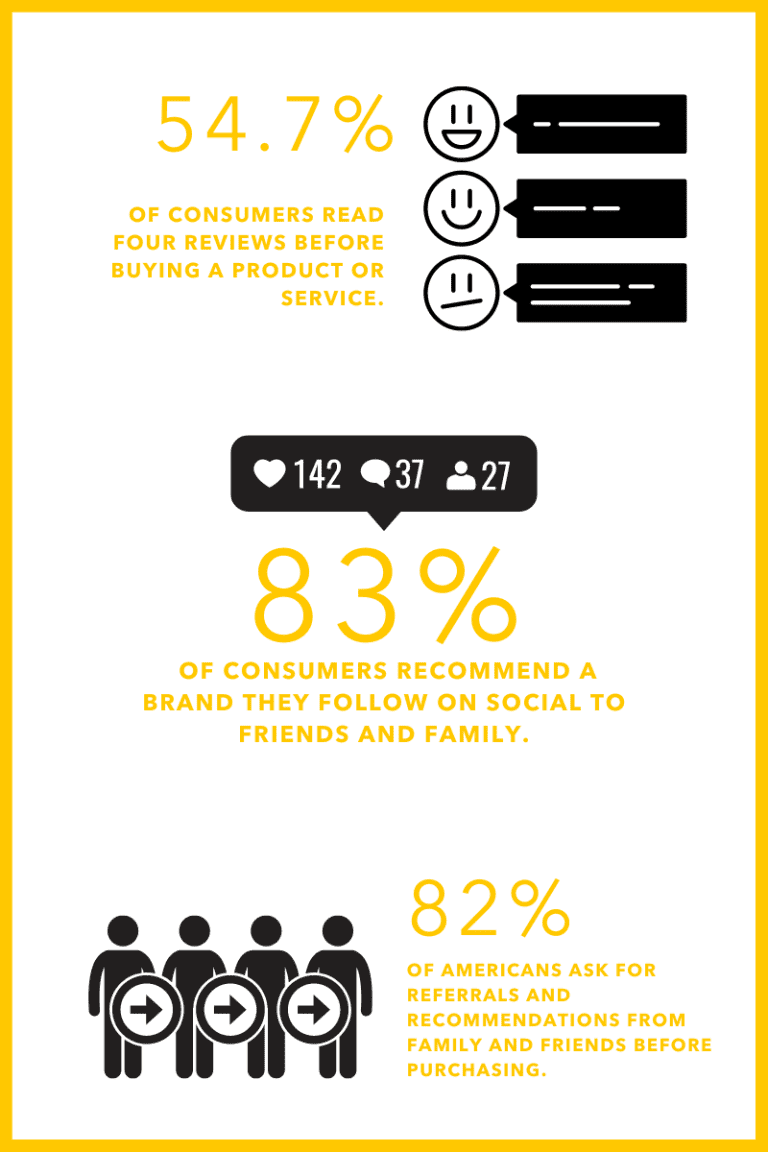She modified the copy from “Operators are waiting, please call now.” to:
“If operators are busy, please call again.”
Colleen Szot was one of the most effective copywriters of the 20th and 21st centuries for the home shopping network. At first blush, it would appear this small change to the copy might have been ill-advised, conveying that the customer might have to spend their time dialing and redialing
“Operators are standing by.” = nobody is calling
“Operators are busy” = perception that others, perhaps millions of others, have bought and so should you.
Yet, this view underestimates the power of social proof.
When people are unsure of a decision, they look to others to guide them, especially in their purchase decisions.
Suppose you’re shopping for a new pair of shoes. You’ve discovered three that you love, based on the pictures alone. One has more than 400 reviews with an average rating of 4.7 stars. The second pair of shoes has 110 reviews and a 2.5-star rating. The third has no reviews at all. Which do you choose?
Of course, you’re drawn to the shoes with over 400 satisfied buyers.
Why? It’s due to a psychological concept called social proof.
If you are at a party with people you don’t know for the first time, it’s natural to observe your surroundings to ensure you’re acting the way everyone would expect them to act.
When marketing your product and services, social proof works the same way – when people shop, they look for validation and recommendations that others have used a product before choosing to buy.

There are many ways you can build social proof into your marketing to showcase your satisfied buyer’s experiences to potential clients. If you lack reviews or testimonials, try these methods.
The Barter Method
An easy way to acquire testimonials is to help a few people at a much lower rate than you would normally charge in exchange for a testimonial.
If you have a small email list, send a simple email offering this exchange for a limited number of people.
Ask for Hyper Specific Detail
A generic “I loved this product!” testimonial is great but non-specific.
Here are three rules for great testimonials that have an impact on decision-making:
- Let prospective customers know how the product works.
- Share details on unique differentiators.
- Answer your prospective customer’s objections.
Automate the Process
Finally, move to a much more automated system of collecting testimonials. There are a few different ways to do this effectively:
- Use an embedded collection widget
- Use email automation triggers
- Automate to your landing page
When there are 2 or 200 products or services that are similar to yours, it can be difficult for a consumer to differentiate.
Leveraging social proof remains one of the most effective ways to ease the minds of apprehensive customers.


